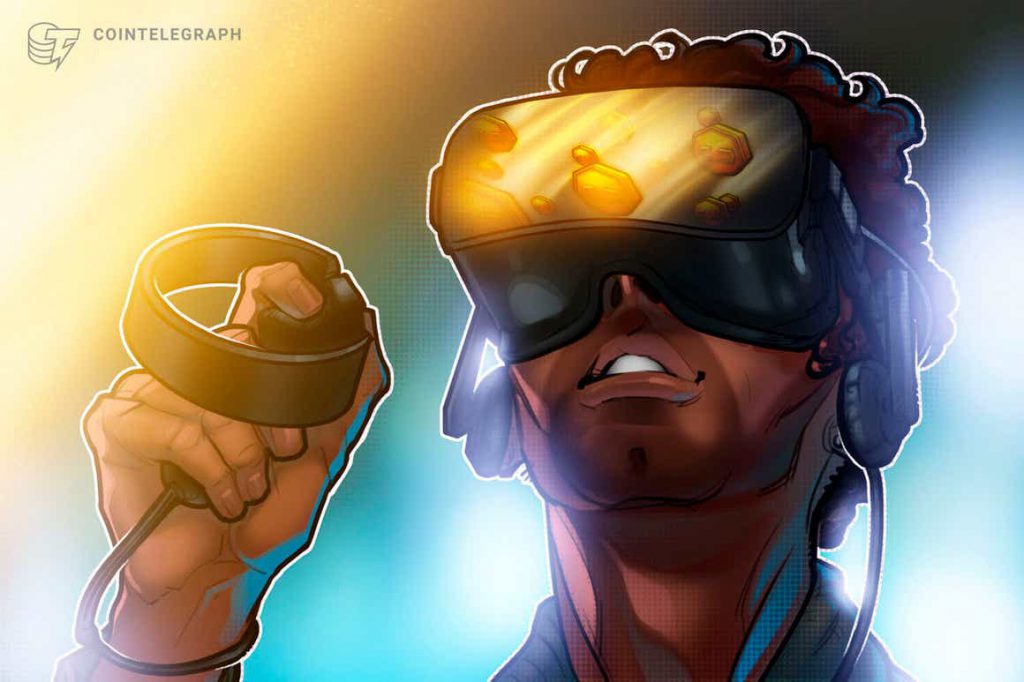Blockchain-based play-to-earn (P2E) gaming had a breakout year in 2021, and as the cryptocurrency ecosystem evolves in 2022, the P2E gaming sector and those that invest in it will need to consider what the next steps are. During bull markets, vaporware, speculation and euphoria can lead to unrealistic valuations and expectations, and this appears to also have impacted the P2E sector.
Now that the hype is “over,” investors and developers will need to identify new value propositions that catalyze growth and steady investment into the blockchain gaming sector.
Here’s a closer look at some of the trends that could emerge in the P2E ecosystem in 2022.
Profit-sharing communities
The first trend to keep an eye on in 2022 is projects that are looking to harness interest in nonfungible tokens to create profit-sharing models and capitalize on the price appreciation of NFTs.
These projects aim to offer opportunities for gamers and investors by providing a platform where investors who are not interested in playing games can invest and provide NFTs for players who would not otherwise be able to afford them.
From there, players earn rewards for their gameplay, while investors earn a share of the profits.
One example of this type of protocol is Yield Guild Games (YGG), a P2E gaming guild and decentralized autonomous organization focused on creating a community that lets players earn via blockchain-based economies.
The DAO generates revenue through the sale of NFT assets or by renting them out to gamers as part of a profit-sharing model known as a scholarship.
There are currently more players wanting #playtoearn scholarships than there are game assets to meet the demand
Together with our newest Sponsor-A-Scholar partner @coinbase, YGG will be able to onboard more new players worldwide pic.twitter.com/WXI8yniqt7
— Yield Guild Games (@YieldGuild) January 11, 2022
Some of the current games and investments that YGG is involved with include Axie Infinity, Illuvium, Guild of Guardians, Star Atlas, Splinterlands and The Sandbox.
The most recent investment for the YGG community was a $50,000 investment in the seed round of Heroes of Mavia and a $330,000 purchase of NFT land assets in the game.
Communities with educational support
Another trend emerging out of the gaming and NFT sectors are communities that focus on educating community members on how to earn money through gameplay.
Blockchain-based gaming can be a challenge for newcomers to learn, and some games have upfront costs that prevent some players from being able to play.
To help simplify the process, a few protocols that invest in providing apprenticeships for players have come into existence. Merit Circle is a DAO project focused on developing its P2E economy by helping gamers transform their hobby into a steady stream of income.
The Merit Circle DAO is maximizing value and accrue it to all the participants.
The main activities can be separated into ⬇️
(pre)seed investments into ‘GameFi’
Scholarship program
Treasury management
Developing products in-houseAll adding value to $MC pic.twitter.com/0bHAhbniKH
— Merit Circle (@MeritCircle_IO) January 11, 2022
At the time of writing, the Merit Circle community has 2,750 active gamers from regions all around the world — including Asia, Africa, Europe and South America — who earn rewards daily by playing one of the supported games.
Similar to YGG, Merit Circle also invests in community-held assets that can be used by gamers to earn rewards, with 30% of all proceeds being reinvested in the DAO or distributed to tokenholders.
The project uses educational content and one-on-one coaching sessions to help improve the performance of scholars on the platform. These players have earned more than $2 million through gameplay to date.
Related: New research expects a gloomy year for Bitcoin as DeFi and DAOs rise
DeFi combines with NFTs and P2E gaming
A third trend forming in 2022 is the development of projects and investment funds that aim to combine aspects of decentralized finance (DeFi), NFTs and P2E gaming.
While the gaming sector only appeals to a niche crowd, NFTs have a wide range of capabilities that can be applied to many fields ranging from art to real estate by providing immutable proof of ownership.
As blockchain technology continues on its path to mass adoption, an increasing number of real-world items will be digitally recorded on distributed ledgers, ultimately providing interested parties with an easier route to investment than exists at present.
It also allows for the possibility of fractionally owning certain high-price items such as a hotel or the copyright to a popular movie or music album.
.@Nas May Be Offering Fractional Ownership Of His Music — But For Him, ‘This Isn’t Really For The Money’ https://t.co/34A2yhX6MP pic.twitter.com/yWWAqOlwLd
— AfroTech (@AfroTech) January 11, 2022
BlackPool is one such project that is currently run by a team of portfolio managers, traders and analysts with the long-term goal of becoming “a leading provider of financial derivatives in digital asset marketplaces, including asset valuation indexes, insurance mechanisms and actively managed strategies.”
Ultimately, the project is looking to provide democratized access to scarce NFT assets “that users might individually not be able to buy themselves.”
Through the development of its DAO structure, BlackPool is now in the process of decentralizing its current operation to allow all of the NFT assets held by the fund to be managed by its community of token holders.
Want more information about trading and investing in crypto markets?
The views and opinions expressed here are solely those of the author and do not necessarily reflect the views of Cointelegraph.com. Every investment and trading move involves risk, you should conduct your own research when making a decision.


